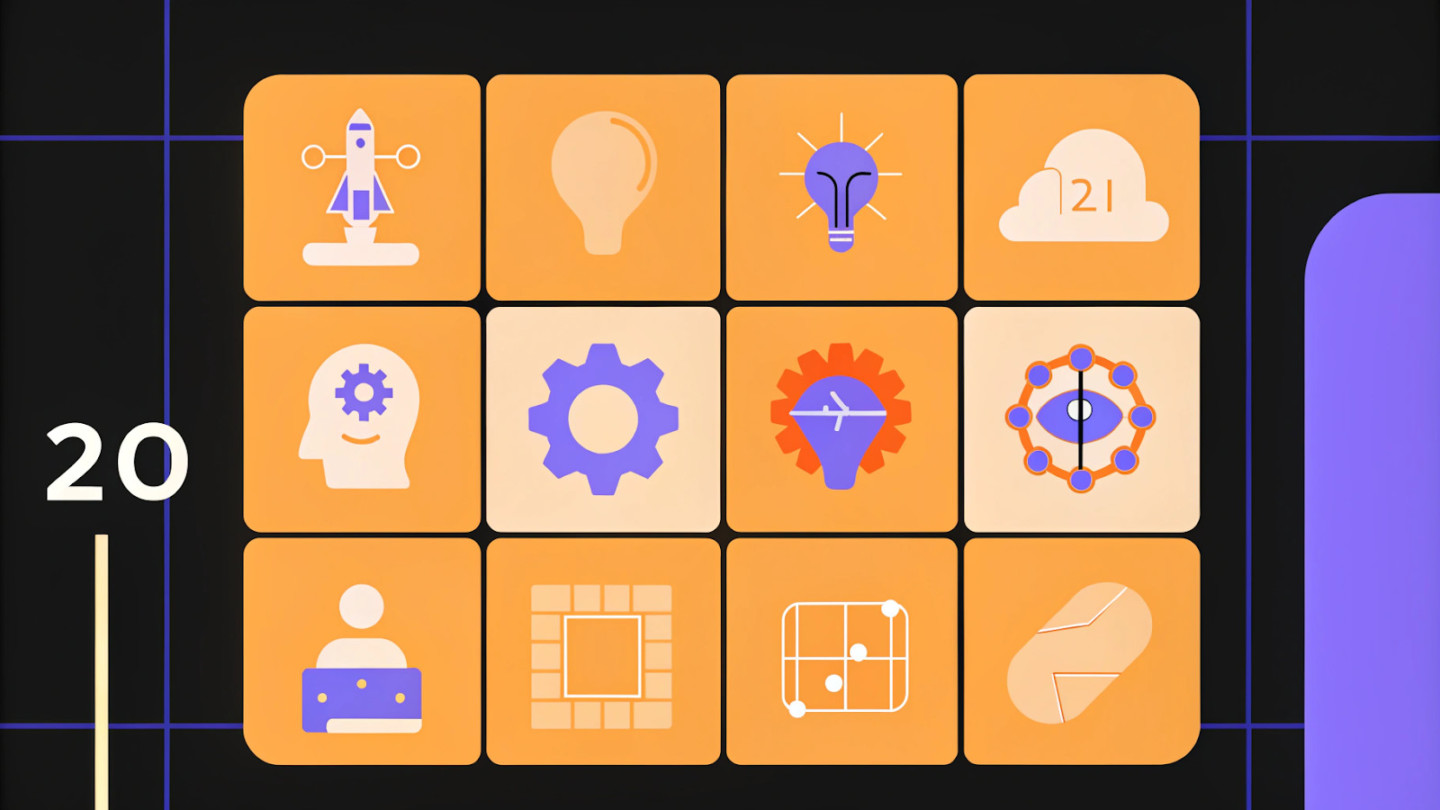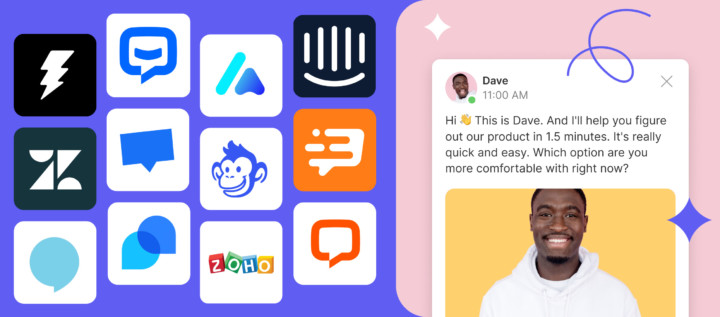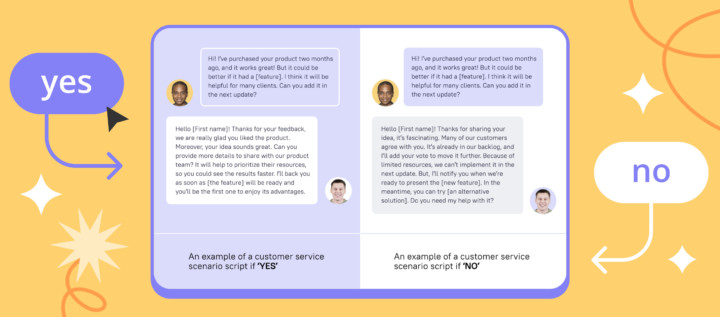Top 20 AI products for productivity you need to try

Introduction
AI isn’t just some futuristic buzzword reserved for sci-fi novels anymore. It’s front and center in today’s business landscape, dramatically impacting how we work and what we can achieve. From automating mundane daily tasks to supercharging entire workflows, these intelligent tools are becoming vital for any team looking to raise their game. You’ll find them everywhere: in automated meeting scheduling, dynamic CRM systems, and advanced marketing suites. They’re not hype — AI solutions are proving their worth in real numbers and real outcomes. As more companies jump in, it’s essential to know which AI-driven products actually propel your productivity forward, and how to pick the right ones.
This article is all about practical guidance. It explores how AI reshapes daily operations, dives deep into top AI resources that unleash productivity, and shows how you can align these solutions with your specific needs. As we go through these ideas, you’ll see exactly what’s possible when you harness the right AI tools — especially the top 20 AI products for productivity — and why holding back could mean missing out on massive competitive advantages.
1. Harnessing AI for enhanced productivity
One of the biggest shifts we’re seeing is how AI elevates daily operations to whole new levels. Tools powered by machine learning, natural language processing, and advanced automation are clearing away tedious tasks so you can focus on what’s really important. We’re at a point where even something like a smart speaker — already owned by over 1 in 5 U.S. adults — signals how baked-in AI has become in our everyday environments.
No wonder 86% of CEOs, as reported by PWC, agree that AI is tightly intertwined with commerce. AI use is not a fringe strategy; it’s the new normal. Just look at manufacturing: companies that deploy AI have seen a 12% jump in performance over their old methods. It’s not just about efficiency; it’s about staying relevant and getting ahead.
Of course, some remain cautious, worried about job loss and the ethical questions AI raises. They fear a future where machines outdo human roles. This is where small business owners need to lean in thoughtfully. The upside, offered by solutions like Dashly (automating lead qualification and scheduling), often far outweighs the concerns. The smart move is to approach AI not as a threat, but as a powerful ally that liberates your team’s time and talent.
2. Top AI tools to boost your productivity
Here are some standout tools making waves. They’re not fringe novelties; these are the top 20 AI products for productivity that savvy professionals lean on to get ahead:
- Todoist AI Assistant. This smart to-do partner helps you manage tasks more effectively. Instead of feeling overwhelmed, Todoist AI Assistant breaks complex projects into smaller steps, offering strategic tips so you knock out your priorities smoothly.
- Motion. By merging task management with calendar scheduling, Motion ensures you never lose track of what matters. It automatically weaves tasks into your calendar, aligning them with meetings and deadlines. The result? Less scrambling, more doing.
- Otter.ai. Meetings can be productive or a huge time sink. Otter.ai makes them valuable by transcribing spoken content instantly, giving you accurate, searchable records. No more frantic note-taking — just focus on the discussion and let Otter handle the details.
- Fireflies.ai. Another meeting intelligence tool, Fireflies.ai captures what’s said, then summarizes the highlights. Integrate it with your favorite conferencing apps and boom, you’ve got your decisions and next steps recorded without lifting a finger.
- ChatGPT is a versatile AI assistant that handles content generation, document summarization, and even coding assistance. Whether you need blog posts, emails, or quick answers to complex questions, ChatGPT streamlines the creation process with AI-powered efficiency.
- Reclaim AI. Reclaim AI helps preserve your time for what counts by blocking out important hours for deep work, personal breaks, or critical tasks. Synced with your Google Calendar, it constantly adjusts to keep your schedule realistic and protective of your focus.
- Clockwise. If you’re tired of context switching, Clockwise rearranges meetings intelligently to preserve precious blocks of uninterrupted work. It’s your ally in protecting the mental space you need to tackle complex challenges.
- Perplexity. Need reliable insights fast? Perplexity uses AI to dig up accurate info and condense it into usable summaries. From research projects to strategic planning, it accelerates the data-to-decision pipeline.
- Humata. Facing a massive report or a data-heavy document? Humata analyzes lengthy text and extracts the key insights. Ideal for those in research-heavy roles, it turns dense reading into an efficient knowledge-gathering step.
- Canva. Designing no longer has to be reserved for pros. With AI tools that recommend layouts, choose colors, or enhance images, Canva makes it easy to create polished presentations, social posts, and marketing materials. The learning curve shrinks, and productivity soars.
It’s important to note: AI familiarity varies by demographics. Different age groups and genders show varying levels of AI awareness, which could impact adoption strategies for small business owners. The smarter you are in choosing and introducing these tools, the better your team will adapt.
3. AI tools transforming business operations
Across marketing, sales, project management, and customer engagement, AI is rewriting the playbook. This isn’t incremental progress — it’s a leap. Process automation frees teams from grunt work, so they can focus on big-picture moves. Customers benefit, too. A striking 64% of consumers believe AI’s main purpose is to assist, enhance, and empower them, making them more receptive to automated but high-quality experiences. And 42% of AI decision-makers say improving customer experience is their top priority. The message is clear: AI is here to make things better, not weirder.
Check out these 10 AI and automation solutions elevating how teams get work done:
- Dashly doesn’t just handle lead qualification — it nails it. By automating appointment scheduling, engaging customers at the right moments, and integrating tightly with your CRM, it handles 90% of the entire booking process. Predictive analytics yield 99% accuracy for meeting totals and 98.3% for revenue forecasts. This means sales teams can pour their energy into high-quality leads and close deals faster.
- HubSpot’s. With HubSpot’s AI engine, you’re not just collecting customer data; you’re transforming it into predictive insights. Automated marketing and service processes tailor campaigns to buyer behaviors, lifting lead quality and customer satisfaction.
- Salesforce’s Einstein layer is like a strategic brain for your CRM. It predicts customer needs, fine-tunes marketing tactics, and trims away grunt tasks in sales and service. You get richer insights and a productivity boost that helps you outrun competitors.
- Gong’s AI combs through sales calls to identify patterns and reveal what really moves the needle. It flags how prospects respond to pitches, what objections come up most, and what closes deals, making sales improvement a data-driven process, not a guessing game.
- Notion AI can pull together meeting summaries, cluster project notes, and help manage tasks across the team. By lending structure to information chaos, Notion AI ensures deadlines and goals stay visible, manageable, and on track.
- Zapier’s AI-driven automation connects your business apps to perform background magic — no more repetitive data entry, no more manual handoffs between tools. It’s a stealth productivity booster that unifies your workflow behind the scenes.
- Motion. Yes, Motion appears twice for good reason. At an organizational scale, it’s fantastic at automatically slotting tasks into your team’s schedule. Everyone’s workload becomes more balanced, ensuring critical work isn’t lost in a sea of to-dos.
- Tely AI. A content marketing force for B2B companies, Tely AI analyzes industries, competitors, and your unique product data to pump out expert-level blog posts that drive organic traffic. You get quality thought leadership content without draining your team’s bandwidth.
- HeyGen transforms text, audio, or existing video content into engaging videos. Its AI capabilities streamline video production so marketers can create shareable content without pricey equipment or countless hours in editing suites.
- Synthesia lets you whip up professional, polished videos without cameras, actors, or weeks of production. Its AI avatars deliver scripted lines in 140+ languages, making global outreach a snap. Video production becomes as accessible as typing a paragraph.
By aligning these tools with your overarching goals, you’re not just shaving off a few minutes here or there — you’re reshaping how your team works, freeing them to do what humans do best: create, strategize, and innovate.
4. The future of AI in productivity enhancement
We’re only at the start line. As AI keeps advancing, its potential to boost productivity will widen dramatically. Consider Dashly’s impact. Automating 90% of appointment booking, swiftly sorting high-quality prospects from the rest, it conserves valuable sales time. The numbers paint a persuasive picture: non-MQL prospects are effectively handled at a 60-70% rate, MQL prospects at 70-90%. Dashly also orchestrates meeting management automatically. Teams no longer waste cycles in back-and-forth scheduling, and the open rates for emails hover around an impressive 50-60%, far outstripping the 20-30% norm.
And that’s just the start. Dashly forecasts meeting totals at 99% accuracy and revenue at 98.3% accuracy, which used to be pipe dreams for most businesses. Before embracing Dashly, many clients struggled with sluggish responses, spotty SLA compliance, and piles of low-quality leads. These inefficiencies especially hurt premium sales packages. Now, with Dashly, top-tier prospects get the attention they deserve, delivering better results across the board.
This is the big picture for AI going forward: More companies — 77% at last count — are either using or seriously considering AI solutions. About 83% deem these top 20 AI products for productivity as a strategic priority. And this trend isn’t happening in isolation. AI will integrate more tightly with augmented reality, IoT, and beyond, weaving together a more efficient, more interconnected ecosystem. The organizations that tap into this evolving landscape will pull ahead and keep pushing the frontier of what’s possible.
5. Choosing the right AI tools for your needs
But it’s not about grabbing just any AI tool and hoping it works. You’ve got to choose wisely. Focus first on compatibility: will it slot seamlessly into your current platforms, data flows, and team habits, or cause disruptive hiccups?
Scalability is next. If your organization is growing, your AI solution should expand smoothly alongside it. Don’t underestimate user-friendliness; solutions that demand extensive training or complicated onboarding can backfire. Strong customer support and regular updates shouldn’t be an afterthought — they ensure you keep unlocking more value over time.
A recent study revealed that 48% of service pros believe generative AI can improve customer self-service. Another Pew Research finding: 64% say AI’s main purpose is to assist, enhance, and empower consumers. And 97% of entrepreneurs trust that ChatGPT will bring advantages to their businesses. Clearly, the opportunity is massive.
Still, don’t ignore challenges like data security, accuracy issues, or lack of training. If you address these concerns upfront, it’s far easier to settle on tools that return consistent value rather than cause headaches. Smart selection means your AI stack won’t just solve today’s bottlenecks; it’ll set you up for tomorrow’s growth.
Conclusion
As this article has shown, weaving AI into day-to-day operations isn’t just a clever hack; it’s a fundamental rethinking of how work gets done. From booking meetings with near-zero human intervention, as Dashly does, to leveraging AI-driven project management and CRM solutions, the productivity boosts are undeniable. The facts and figures — like the jump in manufacturing performance and improved email open rates — back up these claims.
The key to unlocking these benefits is careful, strategic adoption. Consider compatibility, flexibility, and overall user experience when selecting tools. Look for platforms that solve not just current pain points but also set you up for new opportunities as you grow. As more leaders acknowledge AI as a must-have priority, and technology keeps evolving, the potential to supercharge productivity continues to expand.
It’s on you to stay informed, stay adaptable, and seize the moment. By doing so, you’ll transform workflows, shorten sales cycles, deliver richer customer experiences, and find fresh avenues for success. The future of AI in the workplace isn’t a distant possibility; it’s a toolkit you can deploy right now.






![4 steps as Chief Marketing Officer at a new company [Expert guide]](https://www.dashly.io/blog/wp-content/uploads/2022/10/4-steps-as-Chief-Marketing-Officer-at-a-new-company-Expert-guide-720x317.jpg)

![La guía definitiva de growth marketing [explicada por un growth hacker]](https://www.dashly.io/blog/wp-content/uploads/2023/04/The-ultimate-guide-to-growth-marketing-explained-by-a-growth-hacker-720x317.png)